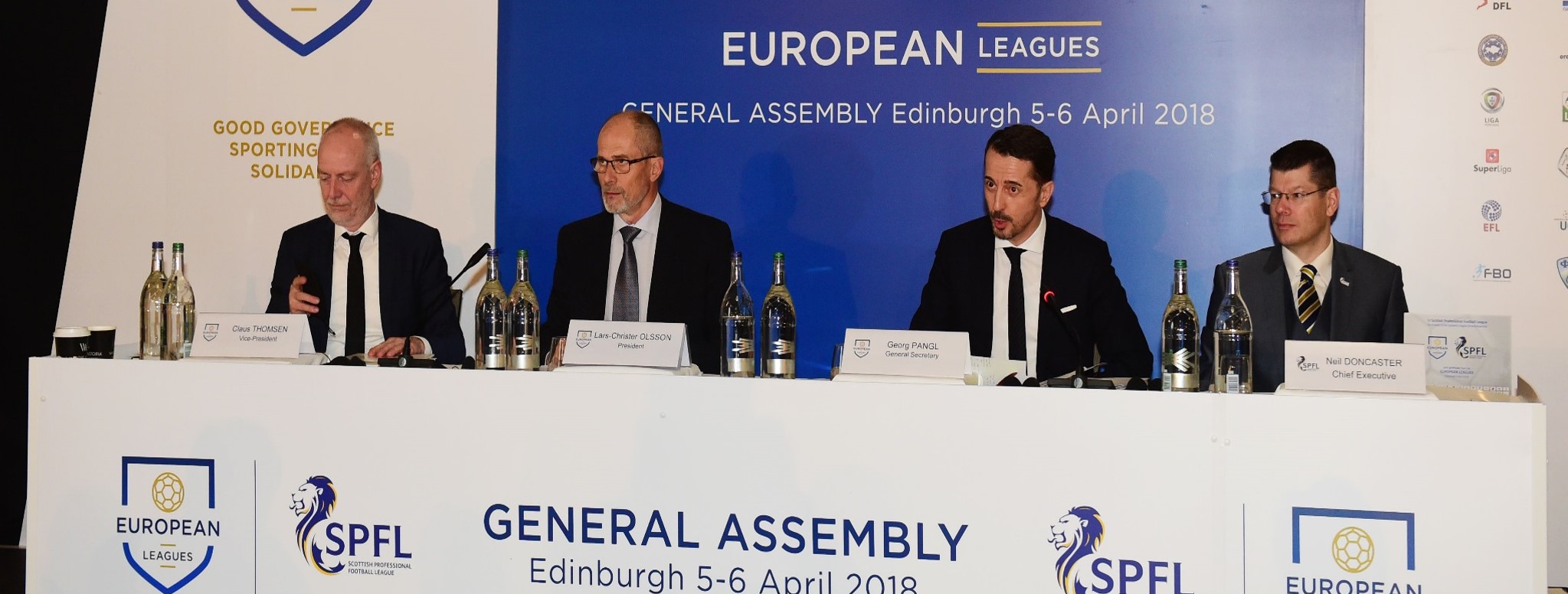European Leagues (formerly EPFL) held their General Assembly in Edinburgh today (Friday, 6th April) where a wide range of topics were discussed including the harmonisation of the summer transfer window and a revised membership structure for member leagues. UEFA’s proposals for the 2018 edition of the Financial Fair Play Regulations was also presented to the Assembly.
The Assembly was historic insofar as it was the first held under the Association’s new European Leagues name. The decision to change the name was unanimously approved by the Assembly along with the change of corporate identity.
The Assembly was presented with a European Leagues analysis on the UEFA Financial Distribution Model for the 2018-2021 cycle. It was felt that the new model is not beneficial in improving competitive balance in European Football. Indeed the new distribution model further increases the economic and financial differences between Clubs from the same league. The inclusion of the new Coefficient Pillar among the distribution criteria favours clubs that repeatedly participate in the UCL/UEL, or Clubs which have historically won titles.
A number of proposals to address this continued and growing imbalance were suggested and will be presented to the football stakeholders on the occasion of the next meeting of the Professional Football Strategy Council.
On the harmonisation of the summer transfer window a proposal was presented and approved that all European Leagues members would agree to close the transfer window in their respective leagues from this coming summer period on no later than the 31st August at 24.00hrs. Currently individual leagues or National Associations set their own closing dates and times. The closing date of 31st August will ensure that all player transfers are concluded after the qualifying rounds for European club competitions have taken place.
The Assembly also addressed a number of internal issues including the approval of a new membership structure. As from today, the non-top tier leagues (such as the English EFL, Italian Serie B and Russian FNL) will become Ordinary Members of the European Leagues with full voting rights. In addition a new category of Development Members has been created aimed at improving league management practices in those UEFA countries were professional football is less developed.
The Assembly unanimously elected Marcin Animucki, President of the Polish Professional Football League (Ekstraklasa), to the Board of Directors of the European Leagues.
Finally the Assembly endorsed the proposal of cooperation with the Council of Europe with regard to the Convention on the Manipulation of Sports Competitions which is the first legally binding tool to fight against match-fixing.
Speaking following the Assembly Lars Christer Olsson said “it is disappointing that from our analysis competitive balance is still not being addressed by the football family. This is a fundamental issue for our members and in the coming months we will be working hard to create a fairer and better model for financial distribution and solidarity”.
“We have had a very successful General Assembly. The changing of our name and our new corporate identity is evidence of a renewed unity, determination and confidence as we move forward to address major issues that confront European football today. We have launched a new Manifesto that will guide and drive us forward”.
Back to All News
